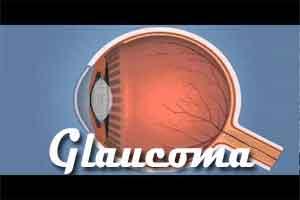- Home
- Editorial
- News
- Practice Guidelines
- Anesthesiology Guidelines
- Cancer Guidelines
- Cardiac Sciences Guidelines
- Critical Care Guidelines
- Dentistry Guidelines
- Dermatology Guidelines
- Diabetes and Endo Guidelines
- Diagnostics Guidelines
- ENT Guidelines
- Featured Practice Guidelines
- Gastroenterology Guidelines
- Geriatrics Guidelines
- Medicine Guidelines
- Nephrology Guidelines
- Neurosciences Guidelines
- Obs and Gynae Guidelines
- Ophthalmology Guidelines
- Orthopaedics Guidelines
- Paediatrics Guidelines
- Psychiatry Guidelines
- Pulmonology Guidelines
- Radiology Guidelines
- Surgery Guidelines
- Urology Guidelines
Human skin cells hold promise to treat glaucoma

New York : Using stem cells derived from human skin cells, US researchers revealed can be turned into retinal ganglion cells (RGCs) the neurons that conduct visual information from the eye to the brain to prevent or cure glaucoma.
The study, published online in the journal Stem Cells, showed that this work has potential implications for treatment of optic-nerve injuries of the types incurred by soldiers in combat or athletes in contact sports.
Investigators took skin cells biopsied from volunteers with an inherited form of glaucoma and from volunteers without the disease and genetically reprogrammed them to become pluripotent stem cells. These are able to differentiate into any cell type in the body.
Researchers then directed the stem cells to become RGCs, at which point the cells began adopting features specific to RGCs features that were different in the cells of individuals with glaucoma than in the cells that came from healthy individuals.
Glaucoma is the most common disease that affects RGCs, which serve as the connection between the eye and the brain, sending information taken in by the eye to the brain for interpretation. When these cells are damaged or severed, the brain cannot receive critical information, leading to blindness.
"Skin cells from individuals with glaucoma are no different from skin cells of those without glaucoma," said Jason Meyer from the School of Science at Indiana University-Purdue University Indianapolis in the US.
"However, when we turned glaucoma patients' skin cells into stem cells and then into RGCs, the cells became unhealthy and started dying off at a much faster rate than those of healthy individuals," Meyer explained.
The study, published online in the journal Stem Cells, showed that this work has potential implications for treatment of optic-nerve injuries of the types incurred by soldiers in combat or athletes in contact sports.
Investigators took skin cells biopsied from volunteers with an inherited form of glaucoma and from volunteers without the disease and genetically reprogrammed them to become pluripotent stem cells. These are able to differentiate into any cell type in the body.
Researchers then directed the stem cells to become RGCs, at which point the cells began adopting features specific to RGCs features that were different in the cells of individuals with glaucoma than in the cells that came from healthy individuals.
Glaucoma is the most common disease that affects RGCs, which serve as the connection between the eye and the brain, sending information taken in by the eye to the brain for interpretation. When these cells are damaged or severed, the brain cannot receive critical information, leading to blindness.
"Skin cells from individuals with glaucoma are no different from skin cells of those without glaucoma," said Jason Meyer from the School of Science at Indiana University-Purdue University Indianapolis in the US.
"However, when we turned glaucoma patients' skin cells into stem cells and then into RGCs, the cells became unhealthy and started dying off at a much faster rate than those of healthy individuals," Meyer explained.
Next Story
NO DATA FOUND

Disclaimer: This site is primarily intended for healthcare professionals. Any content/information on this website does not replace the advice of medical and/or health professionals and should not be construed as medical/diagnostic advice/endorsement or prescription. Use of this site is subject to our terms of use, privacy policy, advertisement policy. © 2020 Minerva Medical Treatment Pvt Ltd